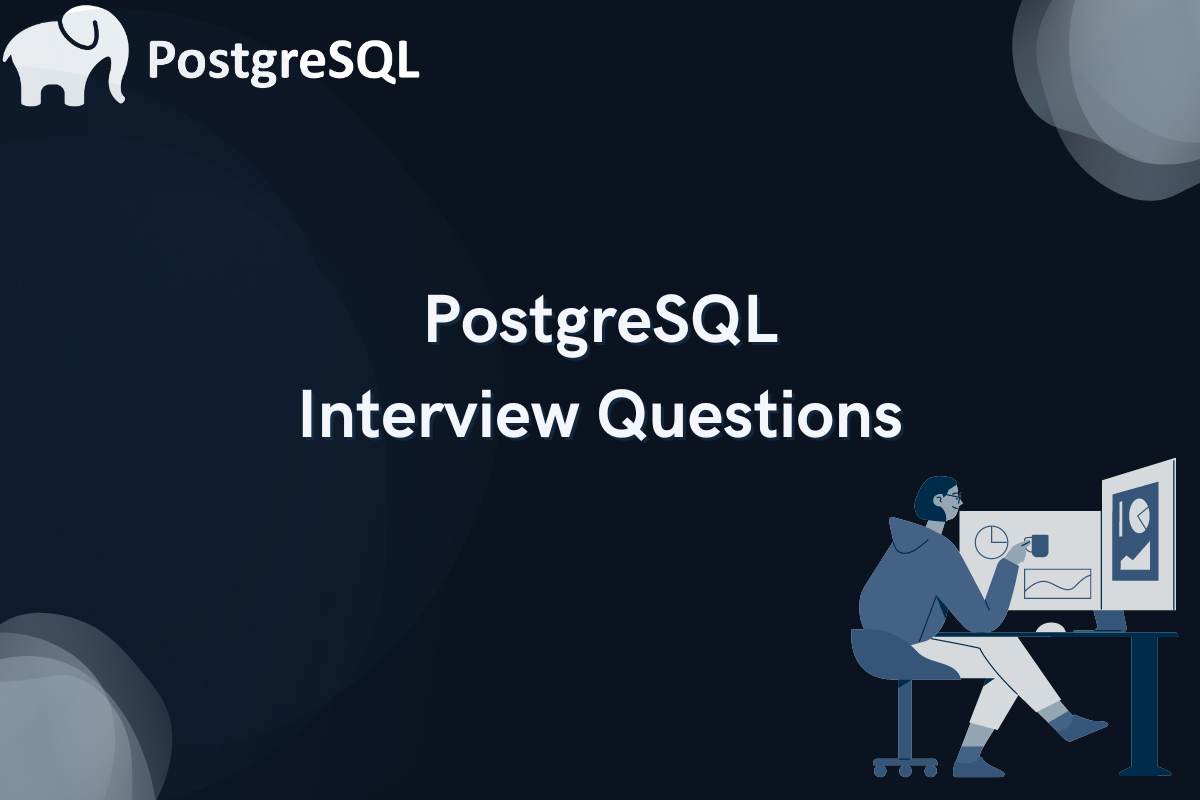If you are looking to assemble a unique group of PostgreSQL developers for your team or to start a good career as a PostgreSQL developer, you have come to the right place. In this tutorial, we will provide you with a curated list of the most important PostgreSQL interview questions for advanced PostgreSQL developers, to help you determine your perfect fit, whether you are a recruiter or a developer.
1. What is PostgreSQL?
PostgreSQL, commonly known as Postgres, powers applications with its powerful open-source relational database management framework. Developers use its extensive features like Function Overloading and Table Inheritance to create advanced applications. PostgreSQL runs easily on major operating systems, including Windows, UNIX, macOS, and Linux.
Also Read: PostgreSQL – A Complete Introduction, History, and Features
2. What are the advantages of PostgreSQL?
The advantages of PostgreSQL are:
- PostgreSQL is more fault tolerant because it features forward write-ahead logging.
- It is customizable and easy to use.
- It supports a variety of replication methods.
- It can be used for large-scale web applications due to its robustness.
- Since PostgreSQL’s source code is freely available thanks to its open-source license, users can easily edit and modify it according to their business needs.
3. How does PostgreSQL differ from other database management systems?
PostgreSQL stands out from other database management systems because of its emphasis on extensibility and standards compliance. It supports multiple data types and provides features such as user-defined functions, stored procedures, and custom indexing options. In addition, PostgreSQL has a vibrant open-source community that actively contributes to its development and provides timely bug fixes and updates.
4. What are the functions in PostgreSQL?
Functions in PostgreSQL act as named blocks of code designed to perform specific tasks in the database environment. These functions include stored functions, compiled functions, window functions, and user-defined functions (UDFs).
Stored functions are stored in a database and can be called from an SQL query, providing a way to make sense of and perform repetitive operations correctly.
Aggregate functions calculate different values, producing aggregate results such as sum or average.
Window functions enable you to perform calculations on relevant rows in a data set, increasing analysis capabilities.
UDFs now allow users to define custom functions using languages such as PL/pgSQL, PL/Python, PL/Perl, or PL/Java for primary use as data manipulation implementation, analysis, or custom applications, PostgreSQL services for developers and Provide versatile user tools for database administrators.
5. Define a non-clustered index.
A non-clustered index in a database is a data structure that enhances query performance by organizing data in a structure that is separate from the actual data storage. Unlike clustered indexes, which specify the physical order of data rows in a table, a non-clustered index stores index keys and pointers to the corresponding rows in the table. Like SELECT queries, because this provides a fast search filter based on indexed columns. Multiple unclustered indexes can be created on the same table, allowing indexes of different columns to be created to retrieve different queries.
While cluster-free indexes improve query performance, they also add extra overhead to data manipulation operations (INSERT, UPDATE, DELETE) because the indexes must be updated to reflect changes in data availability. However, non-clustered indexes play an important role in database optimization, providing flexibility and efficiency in querying large datasets while maintaining the integrity of the original data structure.
6. What are the different data types supported by PostgreSQL?
PostgreSQL supports a wide range of data types, which include:
- Numeric: integer, numeric, real, double precision
- Character: char, varchar, text
- Boolean: boolean
- Binary: bit, bit varying, bytea
- Array: integer[], text[], etc.
- Date and time: date, time, timestamp, interval
7. Explain table partitioning in PostgreSQL.
Table Partitioning in PostgreSQL is the process of partitioning a large table into smaller blocks. These subdivisions are called partitions. List and range partitions are supported by PostgreSQL through its table inheritance feature. Table partitions help improve PostgreSQL query performance because it is much easier to select data from these partitions than from a single main table. Each array is capable of storing data according to frequency, enabling low-frequency data storage on slow or inexpensive media.
8. What is a foreign key in PostgreSQL?
A foreign key in PostgreSQL is a column or set of columns that establishes a link between two tables. It represents the relationship between a referencing table (child table) and a referenced table (parent table). The foreign key constraint ensures consistency of context, enforcing the following rules:
- The value of the foreign key column(s) must be in the primary or unique key column(s) of the referenced table.
- Updates or deletions to the reference table are processed to maintain consistency in the reference table.
- To define a foreign key in PostgreSQL, you can create a table and use the FOREIGN KEY constraint or modify the table to add a constraint. The foreign key column(s) in the reference table must have the same data type as the primary key of the reference table.
Also Read: PostgreSQL Primary Key Constraint (With Examples)
Conclusion
In this tutorial, we have learned about numerous questions that can be asked in PostgreSQL’s interview. You can learn about these above topics individually for better understanding. Whether you work as a database administrator, developer, data analyst, or in a DevOps role, mastering PostgreSQL can enhance your skills and help improve business processes across a variety of business processes. We hope you have enjoyed the tutorial.
